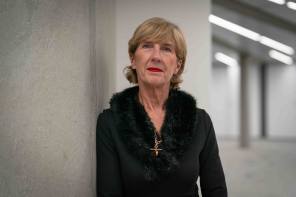

The director of wealth management company Equilibrium Financial Planning believes doing good by his family, staff and clients can be matched fairly with giving back to wider society.
It is Mr Lawson’s self-confessed objective to “always do the right thing”, no matter how difficult or challenging.
In his latest bid to achieve a positive outcome that is a win-win for his company and clients and the greater good, he has appointed a philanthropy expert to help guide the charitable foundation he established in 2010 towards donating Equilibrium’s surplus income to charity.
Inspired by the huge needs of charities, which have increased due to the Covid-19 crisis, Mr Lawson, whose company recently gave away £30,000 to charitable causes, felt that the best way to efficiently and effectively mobilise goodwill, was to consult a specialist in philanthropy.
He appointed Andrew Evans, founder of Think Philanthropy, to help develop a portfolio of third-sector organisations that have a particular need and will use their donations most effectively to carry out their work.
The Equilibrium Foundation aims to donate £4m to charity by 2028.
Staff from the company sit on the foundation’s board, and there are Give as You Earn, Diamond Status and Matched Funding schemes to encourage staff and clients to support the foundation.
Striking the right balance
Mr Lawson and his wife and business partner Gaynor (who uses her original surname Rigby) believe that money should be balanced between personal interest of self and family, and then giving back to society in the form of investing in and donating to good causes.
While he and Ms Rigby have generously ensured that a fixed sum will go to their children in their wills, the rest of their resources will be left to the foundation.
“Too much money hinders wellbeing, whereas the right amount enhances it,” he says. “We want to make sure our wills enhance not hinder our children’s lives.”
This is very much the principle behind the company’s work with its clients.
Mr Lawson aims to help make surplus money more meaningful in order to enhance wellbeing. He says: “A lot of people don’t know what the purpose of their money is. So we work on how we give them confidence and clarity to make more of the money they have got.”
At first, this could be spending money on themselves, maybe intergenerational planning and supporting family. “It’s not just [using the money] in absolute need, but you use that wealth to improve everyone’s lives.” He says that this leads into the philanthropy aspects.
He encourages clients to put aside a “pot of money” for themselves, to support their family, and then with the surplus create a “notional charitable pot”.
Mr Lawson explains: “If you create a £1m charitable pot we haven’t given it away just yet. It is just sitting there.
“We give away the growth on that. Then slowly and surely clients realise they don’t need that money and we help them manage the tax so it becomes an actual pot.”
According to Mr Lawson, there is a great desire for people to give money and put back into society, and Equilibrium’s aim is to help give them clarity and purpose around this.
Having a philanthropy expert helps enormously and is “worth his weight in gold”, he says.
It is a vital development in the aims of the foundation, and for Equilibrium in terms of helping its clients most effectively. It is about learning, he says, not only for himself but in order to advise clients too.
Mr Lawson describes how the original aim of the foundation was that “businesses were to have a responsibility to do their bit and look after their communities, by default”.
He says: “It is growing more and more in a tilt away from charitable giving (pulling on the heart strings and giving small ad hoc amounts of money) to philanthropy – using time, money, resources and energy and solving a problem. In our case financial literacy, because I believe the UK is poor in this area.
“We centre on people’s passions – what are their passions and what charities match their passions?”
Staff are also consulted on charities and causes they care about. Causes include young people, education, entrepreneurship, and the wealth divide and inequality.
Putting staff first
Supporting his staff is something Mr Lawson is very keen on. He is particularly proud of his company being listed among the Sunday Times Best Companies to Work For over the past four years running. “We believe very passionately that if we put our staff first and make it rewarding and make it challenging, they put their clients first.”
He says the pandemic has offered opportunities as well. “Covid-19 has been a testing ground and learning opportunity for all the work we have done previously to lay the groundwork of care for our staff”.
In a happiness survey conducted among all staff, three words recurred to describe how they felt: supported, informed and motivated.
Mr Lawson and Ms Rigby have initiated Covid-19 emergency packs, spent a weekend writing out 90 individual cards to all staff, organised Zoom team socials and online bingo.
“We try to maintain a personal touch and make sure staff get something from us every week”, he says.
Perhaps it is his approach of practising the principle of “doing what is right”, from home life to business life and beyond, that helps Mr Lawson maintain his balance.
“Stick to your values” he recommends to other companies.
“As you grow and get bigger, it will become harder. Just keep to your central ethos, and it will see you through.”
Anita Boniface is a freelance journalist



